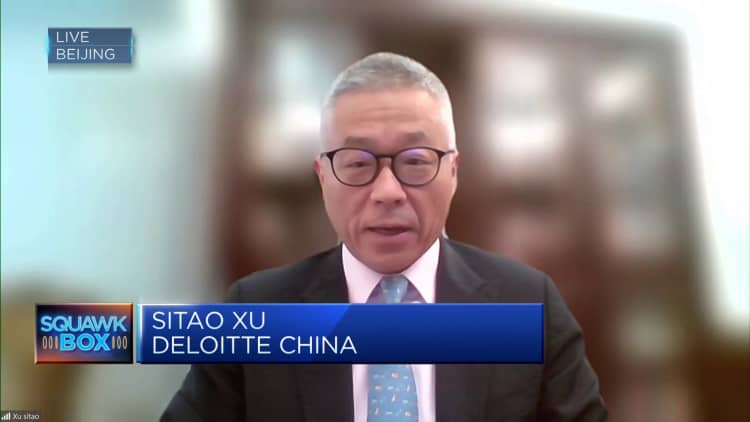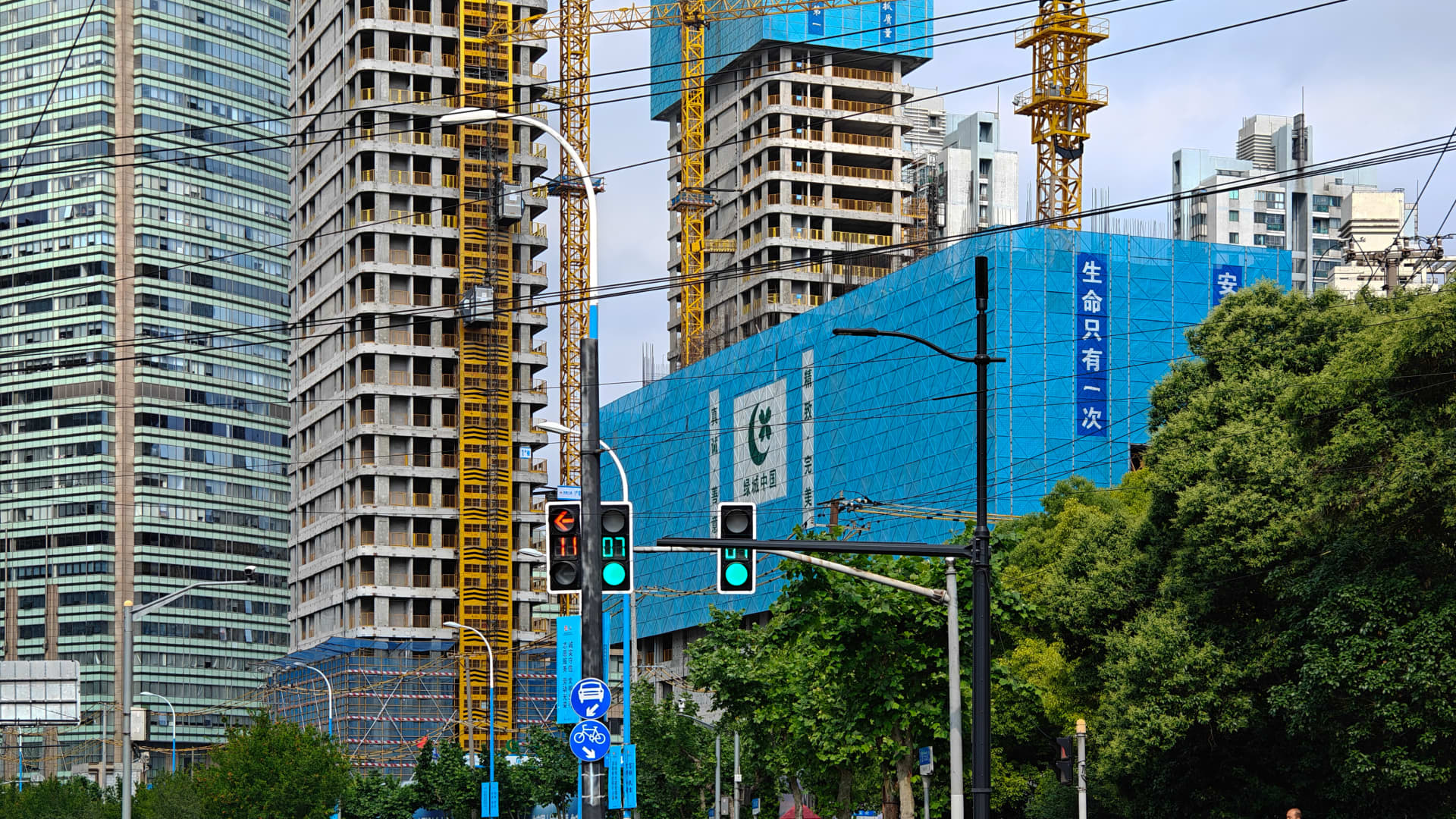A real estate development is under construction near the Bund in Shanghai, China, on May 25, 2023.
Future Publishing | Future Publishing | Getty Images
BEIJING — Despite signs of recovery earlier this year, China’s massive real estate sector is still struggling to turn around, new data show.
“Contrary to April, the real estate market saw higher prices but slower sales,” the U.S.-based China Beige Book said in its May report on Tuesday, based on a May 18-25 survey by the research firm. Based on a survey of 1,085 businesses.
“In commercial real estate, both pricing and transactions weakened sharply,” the report said. “Poor construction results and reduced fiscal activity contributed to a contraction in copper producers’ earnings and output in May.”
Beijing eased pressure on property developers last year after cracking down on their debt levels in August 2020. The real estate industry and related industries account for more than a quarter of China’s economy, according to Moody’s estimates.
New home sales rose 11.8% year-on-year in the week ended May 28, a sharp slowdown from the 24.8% rise a week earlier, Lu Ting, Nomura’s chief China economist, said in a note on Monday. This is based on Wind Information’s 7-day moving average data.
Sales for both weeks were lower than the same period in 2019 before the pandemic, the report said.

The drop in sales was mainly due to China’s larger cities, the report said. Those so-called first-tier cities have been a bright spot, as people tend to move to urban centers to find work.
investor retreat
Investors in Chinese property developers are also increasingly skeptical of the market.
The Markit iBoxx index of Chinese high-yield real estate bonds fell back to trading levels near November, when Beijing announced a “16-point plan” to support the sector.
Analysts at S&P Global Ratings said in a May 22 report that while the program “helps lay the groundwork for this crisis,” the moves are only intended to support developers’ debt at the project level.
That meant there was still uncertainty about the developer’s ability to repay investors’ bonds at the holding company level, the rating agency said. They are looking at whether developers can generate enough cash from property sales.
National property sales fell to 900 billion yuan ($126.87 billion) in April, below last year’s monthly average of 1.1 trillion yuan, analysts said.
For full-year 2023, S&P expects Chinese developers’ sales to fall by about 3% to 5%, slightly better than its previous forecast of a 5% to 8% decline.
This year’s forecast is based on expectations of sales growth of about 3 percent in large cities, while sales in smaller cities fall by no more than 10 percent, the report said.
Secondary market stumbles
In the resale housing market, business activity “has cooled since April, with fewer homes for sale, lower asking prices and fewer transactions,” Fitch Ratings said in a release Monday.
“This slowdown follows a strong rebound in 1Q23, suggesting homebuyer confidence remains fragile amid an uncertain economic outlook and weak employment outlook.”
New homes in China are often sold before developers finish building apartments.
“Secondary home market sentiment can often be seen as a barometer for the real estate sector, as pricing and supply are not subject to regulatory intervention – unlike the new home market,” Fitch analysts said.
Second-home sales also greatly affect the price of new homes, with more than half of homes sold in China’s major cities estimated to be in the secondary market, analysts said.
Hopes for a recovery were running high amid the weak performance in May.
The People’s Bank of China’s quarterly survey found that Locals are showing increased interest in buying homes in the coming months – and higher expectations for higher house prices.
Liu Lijie, a market analyst at Beike Research Institute, said in written comments translated by CNBC on Tuesday that the real estate market is still in a “period of adjustment”.
Government policies need to boost market expectations for a property recovery, Liu said, noting that even in big cities additional measures could be taken to stimulate home purchases.


